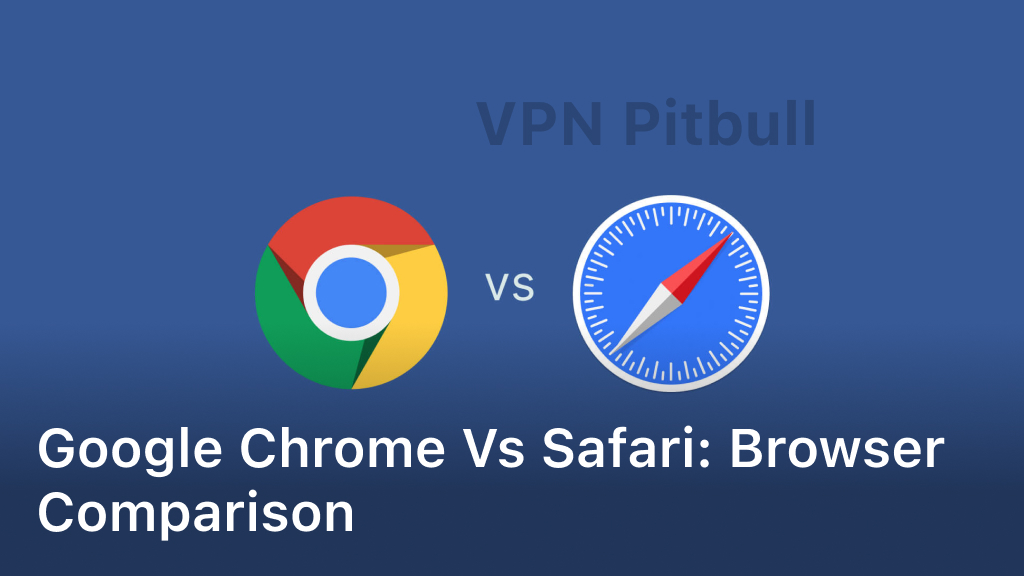Google Chrome vs Safari: Browser Comparison
In the digital realm, your choice of browser wields considerable influence over your online interactions. Google Chrome and Safari stand out as two of the leading web browsers, each offering unique features and advantages. This article aims to dissect and contrast Google Chrome and Safari, empowering you to make an informed decision based on your specific requirements and preferences.
Google Chrome and Safari represent two distinct approaches to web browsing, each tailored to cater to different user needs. By delving into their respective features and functionalities, we aim to provide clarity on which browser aligns better with your browsing habits and expectations.

User Interface
Google Chrome boasts a clean and intuitive user interface, with a minimalist design that puts the focus on the content. Safari, on the other hand, offers a sleek and elegant interface that seamlessly integrates with macOS and iOS devices.
Performance
Both Chrome and Safari are known for their fast performance and smooth browsing experience. However, Chrome tends to consume more system resources, especially when multiple tabs are open, which can impact overall performance on lower-end devices.
Security
Safari has long been praised for its strong security features, including built-in protection against phishing scams and malicious websites. Chrome also offers robust security features, including regular updates and automatic warnings about potentially dangerous sites.
Customization Options
Chrome provides users with a wide range of customization options, allowing them to personalize their browsing experience with themes, extensions, and settings. While Safari offers some customization options, they are more limited compared to Chrome.
Compatibility
Chrome is widely compatible with various operating systems, including Windows, macOS, Linux, Android, and iOS, making it a versatile choice for users across different platforms. Safari is primarily designed for Apple devices, although a version for Windows was available in the past.
Privacy
Safari prioritizes user privacy by implementing features like Intelligent Tracking Prevention, which blocks advertisers from tracking users across websites. Chrome also offers privacy settings and tools, but some users may have concerns about Google’s data collection practices.
Extensions and Add-ons
Chrome has a vast library of extensions and add-ons available through the Chrome Web Store, allowing users to enhance their browsing experience with features like ad blockers, password managers, and productivity tools. Safari’s extension library is more limited but includes popular options like content blockers and password managers.
Mobile Experience
Both Chrome and Safari offer excellent mobile browsing experiences, with responsive design and intuitive navigation. Safari has the advantage of being tightly integrated with iOS devices, offering features like Handoff and seamless syncing across devices.
Updates and Support
Google Chrome receives regular updates with new features, bug fixes, and security patches, ensuring that users have access to the latest improvements and protections. Safari updates are typically tied to macOS and iOS updates, which may result in less frequent updates compared to Chrome.
Resource Consumption
Chrome is notorious for its high resource consumption, especially in terms of RAM usage, which can lead to slower performance on devices with limited memory. Safari is generally more efficient in terms of resource usage, making it a better choice for users concerned about battery life and system performance.
Developer Tools
Both Chrome and Safari offer powerful developer tools that allow web developers to debug, test, and optimize their websites and web applications. Chrome’s Developer Tools are widely regarded as more comprehensive and user-friendly, making it a preferred choice for many developers.
Accessibility
Safari includes robust accessibility features that make it easier for users with disabilities to navigate the web, including VoiceOver screen reader support and customizable keyboard shortcuts. Chrome also offers accessibility features but may not be as fully integrated into the operating system as Safari.
Syncing Across Devices
Both Chrome and Safari offer syncing features that allow users to access their bookmarks, history, and settings across multiple devices. Safari’s syncing capabilities are seamlessly integrated with iCloud, while Chrome uses Google’s account system for syncing.
Voice Search and Assistant Integration
Google Chrome features built-in voice search capabilities, allowing users to perform searches and control the browser using voice commands. Safari does not offer native voice search but may support voice commands through Siri integration on macOS and iOS devices.
Conclusion
In conclusion, both Google Chrome and Safari are excellent web browsers with their own strengths and weaknesses. Chrome is a versatile option with extensive customization options and cross-platform compatibility, making it ideal for users who value flexibility and feature-richness. On the other hand, Safari offers a seamless and integrated browsing experience for macOS and iOS users, with strong privacy features and resource efficiency. Ultimately, the choice between Chrome and Safari depends on your specific needs and preferences.
FAQ
Is Google Chrome better than Safari?
It depends on your priorities. Chrome offers more customization options and cross-platform compatibility, while Safari excels in integration with Apple devices and privacy features.
Does Safari use less battery than Chrome?
Safari is generally more resource-efficient than Chrome, which can lead to better battery life on macOS and iOS devices.
Can I use Chrome extensions on Safari?
No, Chrome extensions are not compatible with Safari. However, Safari does offer its own selection of extensions through the Mac App Store.
Is Safari more secure than Chrome?
Safari and Chrome both offer strong security features, but Safari’s Intelligent Tracking Prevention and tighter integration with macOS and iOS may give it an edge in terms of privacy and security.
Which browser is faster, Chrome or Safari?
Both Chrome and Safari are known for their fast performance, but Chrome may consume more system resources, especially on lower-end devices, which can impact speed and responsiveness.




